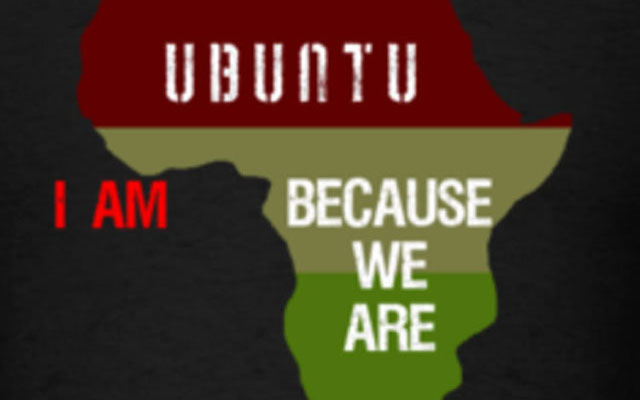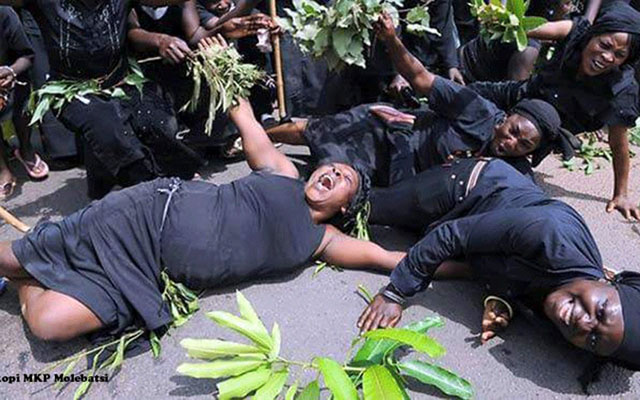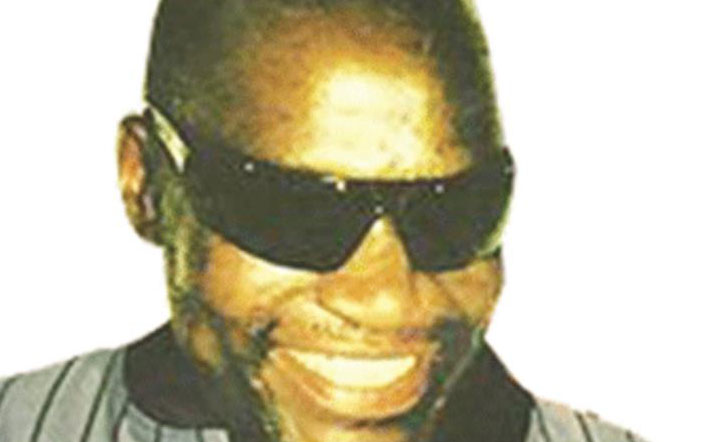Something must give or it will be ‘Cry our beloved Ubuntu!’


Ubuntu revolves around how relationships develop a deep respect for human values and the recognition of the human worth based on a philosophy of humanism
David Mungoshi Shelling the Nuts
According to Dorothy R. Jolley “Ubuntu” means being humane. She also argues that Ubuntu is an expression of cultural beliefs and values and is, therefore, what being human means.
In this respect, Ubuntu knits humans together and imbues them with respect and love, both of which strengthen communication among people, in particular in families and in the community.
People in the West generally have a problem appreciating what Ubuntu entails, being driven as they are, by philosophies of crime and punishment that are inherently retributive. In other words, for them justice is about punishment.
This is a central point of departure with Africa. The whole idea of imprisonment/incarceration is alien to Africa and was an imposition brought in by conquest after the partition of Africa. We had no jails or prisons and no capital punishment either.
No one was ever sentenced to death by a court of his peers whose major function at such gatherings was to look into the matter before them without prejudice and come up with healing solutions that bridged the gaps created by social convulsions.
The emphasis, therefore, was to restore law, peace and order and allow normal human intercourse to go on as before the disturbance. This is what Fainos Mangena refers to as the practice of restorative justice.
According to Dani W. Nabudere the philosophy of Ubuntu is used on a daily basis to settle disputes and conflicts at different levels on the continent of Africa and is, therefore, central to the idea of reconciliation. This restoration is basically the restoration that Mangena has written about.
Despite attempts by cynics to scoff at Ubuntu as being nothing more than a philosophy of the peoples of Southern Africa and a somewhat romanticised fad in the age of globalisation, Dr De Tejada argues that Ubuntu is practised by Africans in most parts of the continent, especially in those regions stretching “from the Nubian desert to the Cape of Good Hope and from Senegal to Zanzibar”.
While others may question this geographical assertion for the philosophy, none can restrict it to a smaller belt.
Nabudere states that Cheick Anta Diop of Senegal advances the view that although Africa (in centuries gone by) ‘lagged’ behind Europe technologically and economically, it was far ahead of Europe in terms of its social and political philosophies and systems.
These systems, which revolved around communal relationships, had developed a deep respect for human values and the recognition of the human worth based on a philosophy of humanism that was far more advanced than that found in the European philosophic systems at that time.
The respect for other human beings is, therefore, a deliberate act based on a well-reasoned cultural and belief system. Growing up on the streets of Bulawayo, in particular, it was the apex of insults to be told that you were lacking in Ubuntu. This unfortunate labelling often was the fate of all children with no obvious rural backgrounds.
Such children were derisively referred to as ‘born-locations’ because they happened to have been in urban centres. Bulawayo was always the best example of a cosmopolitan city and probably still is. Its residents were from all over the continent: from Zambia and Malawi and from Botswana, Lesotho and South Africa.
During the disturbances in what was then known as the Belgian Congo following attempts by Moise Tshombe to secede from the rest of the country, many people came into Zimbabwe and settled in the city of Bulawayo.
The high density suburb of Barbourfields was initially the place where Congolese migrants settled. Their women were conspicuous by the flamboyance of their hair styles and distinct face marks. They also wore colourful wrap-arounds and spoke a language that only they spoke.
Looking back now I am sure that they probably spoke a variety of Congolese languages that included Lingala and other languages. Being ignorant of such intricacies we called all of them ‘amakasayi’ (people from the Kasai Province of the Belgian Congo). And boy, did we fear them in the beginning! All because of bias, ignorance and prejudice.
Rumours spread that the new arrivals were cannibals. It was all a lie of course and it took us children playing together on the dusty streets to debunk some of the false claims. By the time we were teenagers all the funny talk had disappeared and of course the profiles of people from the Congo grew significantly as music from the Congo began to take Africa and the world by storm.
One of the most popular music groups of the times, The Golden Rhythm Crooners led by champion Banda had a man from the Congo playing drums for them. His name was Amigo and I remember that he walked with a slight limp and was light-skinned and handsome in a quiet sort of way.
Migration in the region was not in one direction only. Someone that not too many Zimbabweans know about is Isaac Musekiwa a saxophonist who migrated to the Congo and joined OK Jazz where he became close friends with Franco Luambo Makiadi. Musekiwa joined OK Jazz in the1950s and stayed there right into 1980s.
Liaisons such as these were possible because consciously or subconsciously people subscribed to the philosophy of Ubuntu. Thus, it becomes noticeable when we see strange things happening today, things that tell us that the respect and consideration for others that characterised life in years gone by have become expendable.
In other words, people are now driven by individualistic imperatives. My father regularly slaughtered cattle for his many grandchildren and argued that one should not claim to be rich when all that they did was gaze at their herds and count them, never enjoying beef unless a beast was sick or injured and had to be dispatched.
Yet you hear many so-called celebs these day boasting about the bountifulness of their financial reserves. How can you be rich and never share with others?
We grew up in the city where willy-nilly you became cosmopolitan, learned to appreciate each other regardless of ethnic origin or other considerations. I used to marvel listening to my mother sharing juicy pieces of social this and that with her neighbour.
A vibrant conversation was carried out with my mother speaking unadulterated Zezuru and the other ‘mother’ spoke olukaMthwakazi ulimi (Ndebele).
Out on the streets the young ones played in Ndebele that is they communicated in Ndebele even if their mother tongue was different. And we all went galloping around on metaphorical horses, lustily singing, “Pretty, pretty baby/pretty, pretty baby of mine” and so on.
They were united by our common desire to play as one and to enjoy ourselves in the process. And my father conversed in faultless Lozi with the Sotho-speaking visitors next door.
I could not help looking back at these good times from the past; times when you were indeed your brother’s keeper. Times when the African Daily News and the Bantu Mirror published the Junior Certificate Results and even those parents who seldom bought or read a newspaper bought one.
By the end of the day everyone would know who had passed and in another few weeks they would also know who had joined industry and had gone on to do Cambridge as it was called.
One lucky fellow that I remember joined Feruka Oil Refinery in Mutare where he earned good money and forgot about everyone else. When United Nations Security Council sanctions were imposed on Rhodesia the company closed and he came back home looking like a paper. Eventually he went into the countryside where he spent the remainder of his days.
The man did not live long and never tried to look for another job. He said he could not imagine himself earning peanuts. But another boy made good and was a role model for everyone.
He went on to excel in his Form 4 examinations and his Form 6 as well. Sichura became a medical doctor and walked with a bounce. His success was everyone’s success and we wished him well.
Now take this traditional healer who has become something of a celebrity and appears to have attained that status overnight. The place he rents is always buzzing with life. In terms of numbers there is a veritable rally there every day. Some enterprising people have begun doing roaring business selling fruit and other things. The problem is that the facilities on his premises are said to be too few and inadequate to cater for his crowds. And yes, you guessed it, his ‘clients’ stand against walls and hedges and fowl the environment.
The man does not seem to understand the hazards he may be creating. Clearly there is no Ubuntu here. Contrast him with some of his neighbours who recently gave moral and material support to a bereaved neighbour. Something must give, otherwise it will have to be “Cry our beloved Ubuntu!”
- David Mungoshi is a writer, social commentator, retired teacher and active editor.







Comments